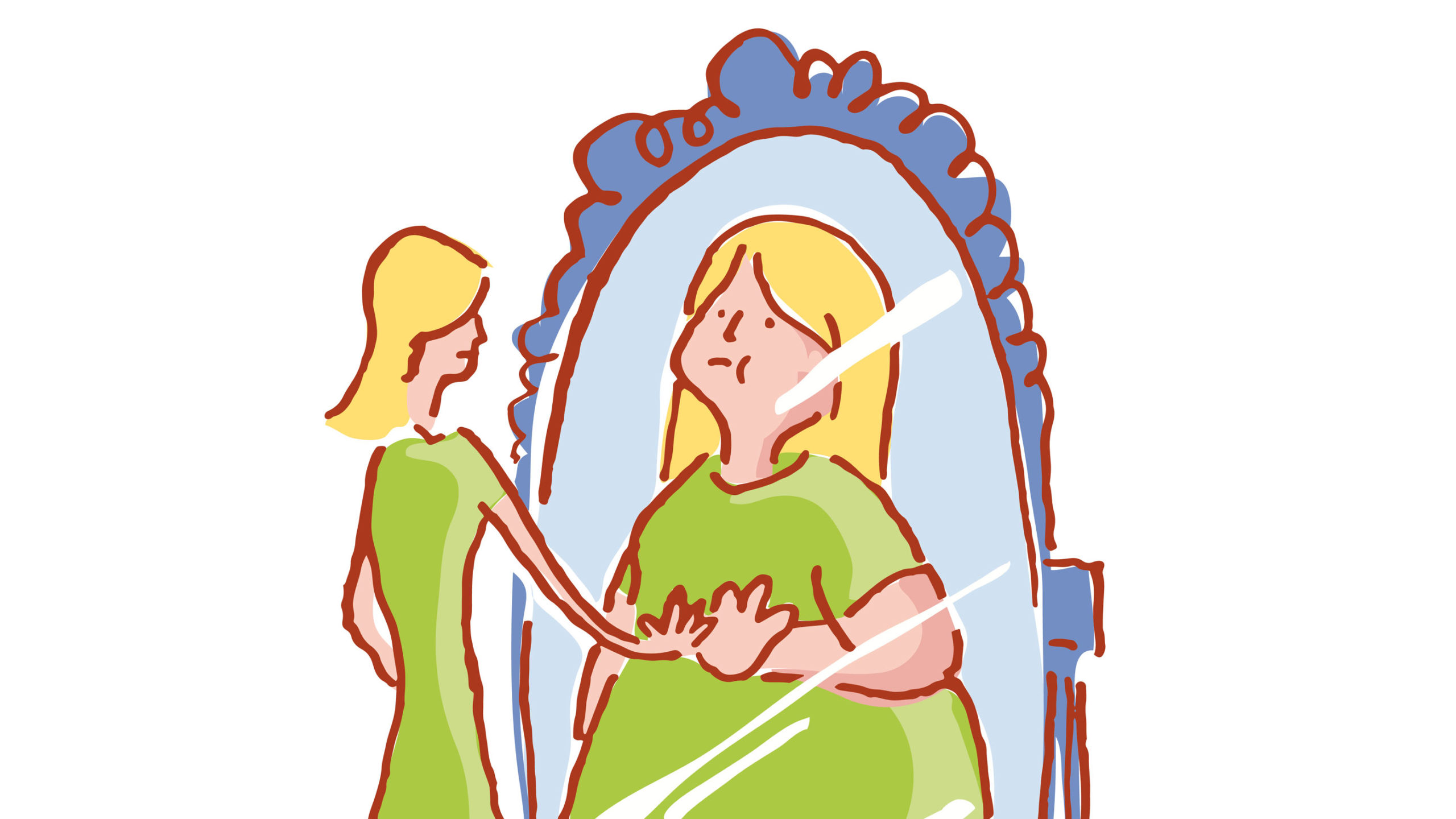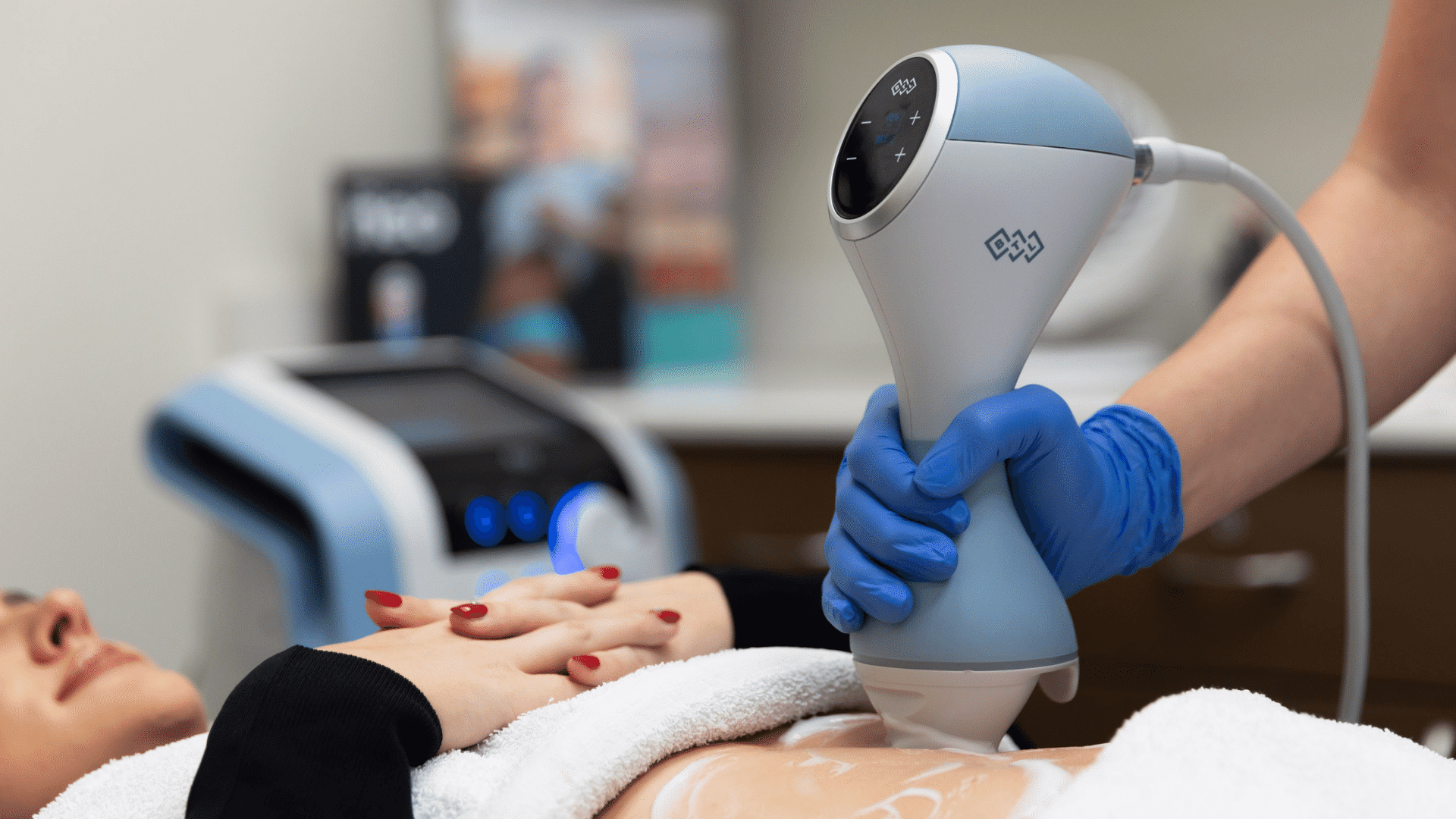What Is Body Dysmorphia?

Body Dysmorphia
Ask the question what is body dysmorphia, and you’ll probably get one of two answers: they’ll shake their heads and look confused, or reply with “oh it’s some kind of eating disorder”.
But that’s not quite right.
You see, whilst body dysmorphia does go hand in hand with many eating disorders such as, anorexia and bulimia often have a body dysmorphic element. However, you don’t have to have an eating disorder to be suffering from body dysmorphia.
If you spend hours considering your “flaws”, have obsessive or excessive body care routines, feel anxious or depressed about the way you look, or if how you feel about yourself actually stops you from taking part in normal activities like socialising, going to work and leaving your home, then you could be suffering from a body dysmorphic disorder.
What Is Body Dysmorphia?
Body dysmorphic disorder (BDD) is an anxiety disorder linked specifically to the way you look. It can manifest as a hyper-consciousness about your appearance. You might find you can’t stop thinking about your perceived defects or flaws – Usually a flaw that is very minor in reality or can’t even be noticed by others. Body dysmorphia is categorised as an obsessive and compulsive disorder and is a very real psychiatric illness.
 The NHS define body dysmorphia as the following:
The NHS define body dysmorphia as the following:
"Body dysmorphic disorder (BDD), or body dysmorphia, is a mental health condition where a person spends a lot of time worrying about flaws in their appearance. These flaws are often unnoticeable to others."
People of any age can have BDD, but it's most common in teenagers and young adults. It affects both men and women.
Having BDD does not mean you're vain or self-obsessed. It can be very upsetting and have a big impact on your life.
You might find you feel so embarrassed, ashamed or anxious that you avoid certain social situations – and in some cases – this can stop you from participating in normal daily activities and in some cases can stop you from leaving your home.
People with body dysmorphic disorder, may repeatedly check their appearance in the mirror, be constantly grooming themselves or seek reassurance from others. In severe cases, it can cause the sufferer serious distress and even impact their ability to function in normal everyday daily life.
Symptoms of body dysmorphic disorder (BDD)
Signs and symptoms of body dysmorphic disorder include:
- Being extremely preoccupied with a perceived flaw in appearance that to others can't be seen or appears minor
- Strong belief that you have a defect in your appearance that makes you ugly or deformed
- Belief that others take special notice of your appearance in a negative way or mock you
- Engaging in behaviors aimed at fixing or hiding the perceived flaw that are difficult to resist or control, such as frequently checking the mirror, grooming or skin picking
- Attempting to hide perceived flaws with styling, makeup or clothes
- Constantly comparing your appearance with others
- Frequently seeking reassurance about your appearance from others
- Having perfectionist tendencies
- Seeking cosmetic procedures with little satisfaction
- Avoiding social situations
Preoccupation with your appearance and excessive thoughts and repetitive behaviours can be unwanted, difficult to control and so time-consuming that they can cause major distress or problems in your social life, work, school or other areas of functioning.
You may excessively focus over one or more parts of your body. The feature that you focus on may change over time. The most common features people tend to fixate about include:
- Face, such as nose, complexion, wrinkles, acne and other blemishes
- Hair, such as appearance, thinning and baldness
- Skin and vein appearance
- Breast size
- Muscle size and tone
- Genitalia
A preoccupation with your body build being too small or not muscular enough (muscle dysmorphia) occurs almost exclusively in males.
Insight about body dysmorphic disorder varies. You may recognize that your beliefs about your perceived flaws may be excessive or not be true, or think that they probably are true, or be absolutely convinced that they're true. The more convinced you are of your beliefs, the more distress and disruption you may experience in your life.
BDD can seriously affect your daily life, including your work, social life and relationships.
Its a growing problem in the UK
Body dysmorphia is more common than you think, affecting around 1 in 50 people with an almost equal split between men and women. It often develops during the teenage and early adult years and it wouldn’t be surprising to know that the condition is on the increase.
Whilst not specifically caused by, it could be suggested that one reason for the increase is due to the pressures young people feel for achieving the perfect physique or figure when they are exposed to so much “perfection” on social media.
Causes
The cause of body dysmorphia is still unknown, but there are some things they consider to be risk factors.
You’re more likely to suffer from body dysmorphia if:
- You suffer from depression, anxiety or OCD
- You have a family history of mental illness
- You’re a victim of abuse or bullying
- You have low self-esteem
- You have a fear of being alone
- You’re a perfectionist
- You’re super competitive
- You have certain genes
- You suffer from depression, anxiety or OCD
Getting help for body dysmorphic disorder (BDD)
Shame and embarrassment about your appearance may keep you from seeking treatment for body dysmorphic disorder. But if you have any signs or symptoms, see your primary care provider or a mental health professional.
Body dysmorphic disorder usually doesn't get better on its own. If left untreated, it may get worse over time, leading to anxiety, extensive medical bills, severe depression, and even suicidal thoughts and behavior.
They'll probably ask a number of questions about your symptoms and how they affect your life.
They may also ask if you've had any thoughts about harming yourself.
You may be treated by the GP, or they may refer you to a mental health specialist for further assessment and treatment.
It can be very difficult to seek help for BDD, but it's important to remember that you have nothing to feel ashamed or embarrassed about.
Getting help is important because your symptoms probably will not go away without treatment and may get worse.
You can also refer yourself directly to an NHS psychological therapies service (IAPT) without a referral from a GP.






